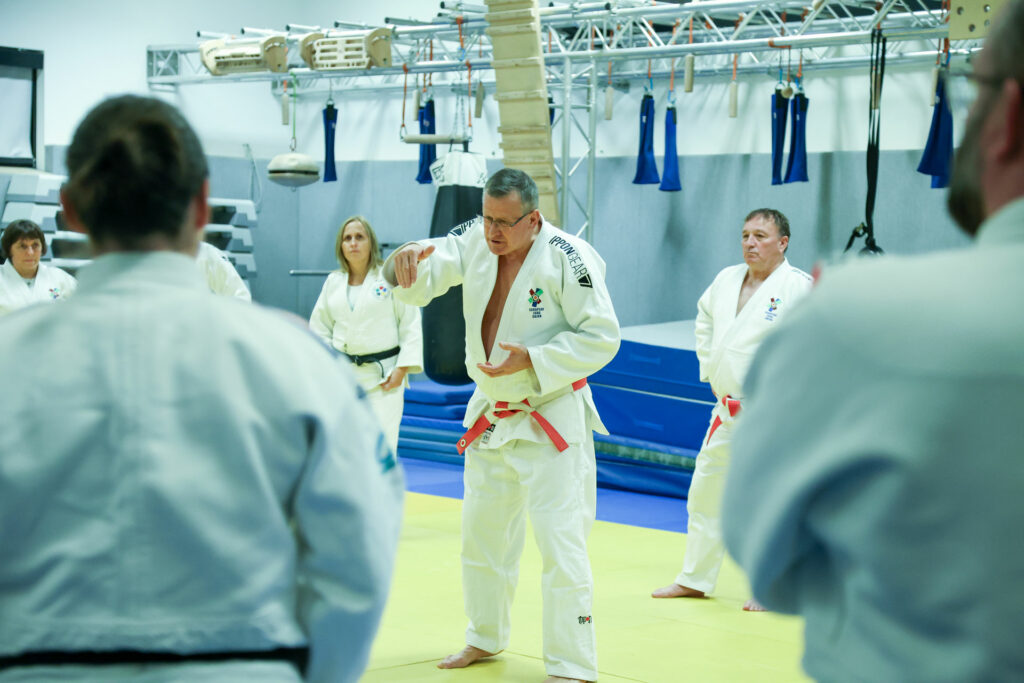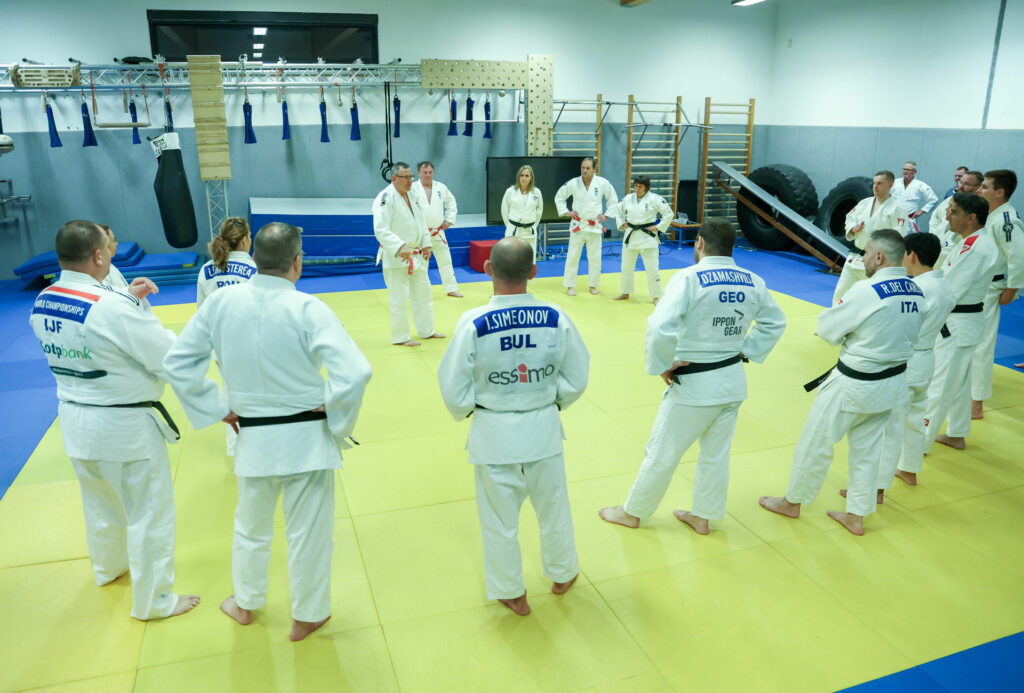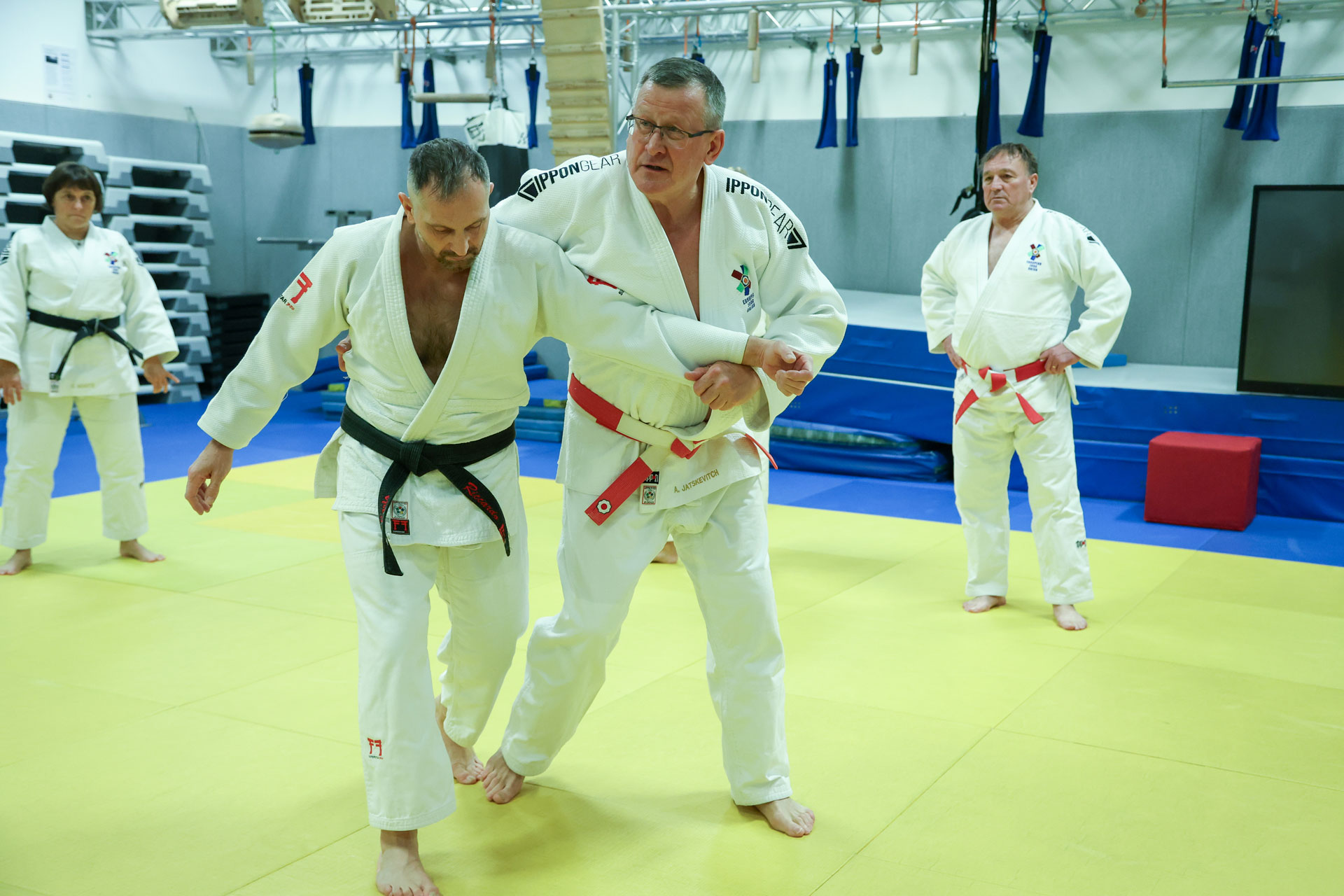EJU Head Referee Director Alexandr JATSKEVITCH hosted the traditional referee meeting in the run-up to the European Championships Under-23. There were three main topics on his agenda: 1) How to differentiate between positive (i.e. active) and so-called negative (defensive) grips? 2) Stepping out or being pushed out? 3) The more distance you keep the better, in order to be able to better assess controversial situations in Newaza.
The Head Referee Director has picked the relevant “best practice” cases from the European Championships Seniors in Montpellier a couple of weeks ago. “All our top referees did a very good job in Montpellier. The individual scores were between 8.7 and 8.0, and wrong decisions were the exception on the three competition days. Nevertheless, it is important that we keep reminding ourselves that we don’t want to decide fights with shidos, but scores. Ultimately, the sport and the attractiveness of the fights should take centre stage. Sometimes it’s worth taking a closer look at whether both players are really active, i.e. whether they are making a positive impact or not. The supposedly simpler solution would be to penalise both. But that is not what we want,” emphasises Alexandr Jatskevitch.
The IJF is supposed to announce the 16 elite referees for the Olympic Games in Paris at the beginning of the year. “Europe’s supremacy among referees is undisputed – we will have eight top EJU referees in action. That is to be expected.”
Here in Potsdam, Alexandr Jatskevitch is not working with the Olympic candidates, but with promising young referees. “They have recommended themselves for higher tasks. Now it’s all about delivering their best performance at European Championship level. The pressure of expectation is increasing.” Not only for the young athletes, but also for the referees.


Author: EJU Media




